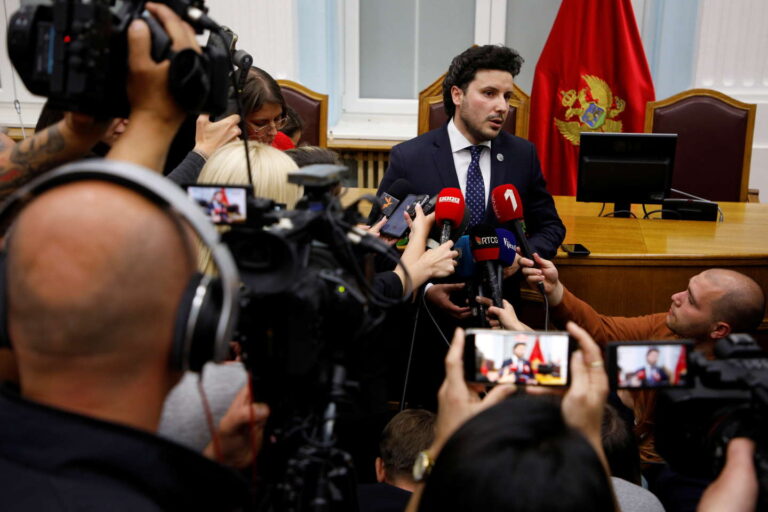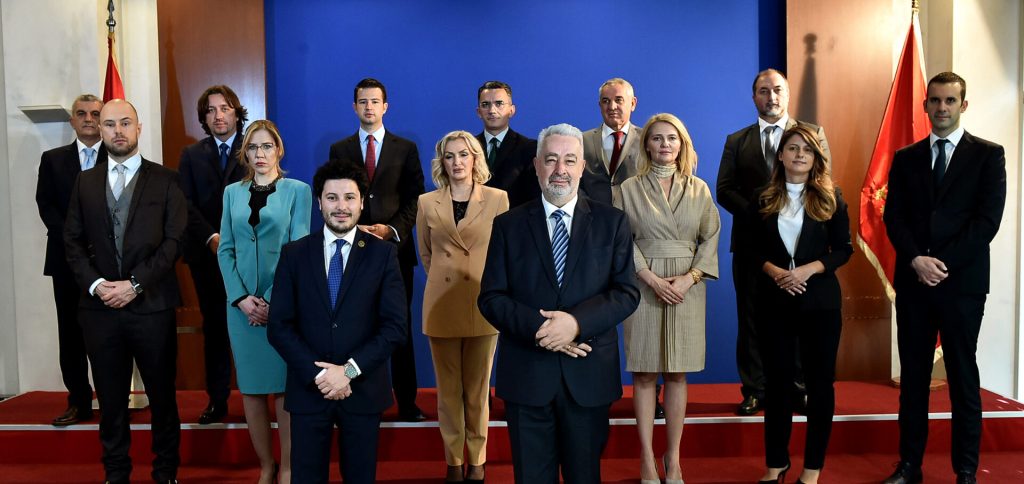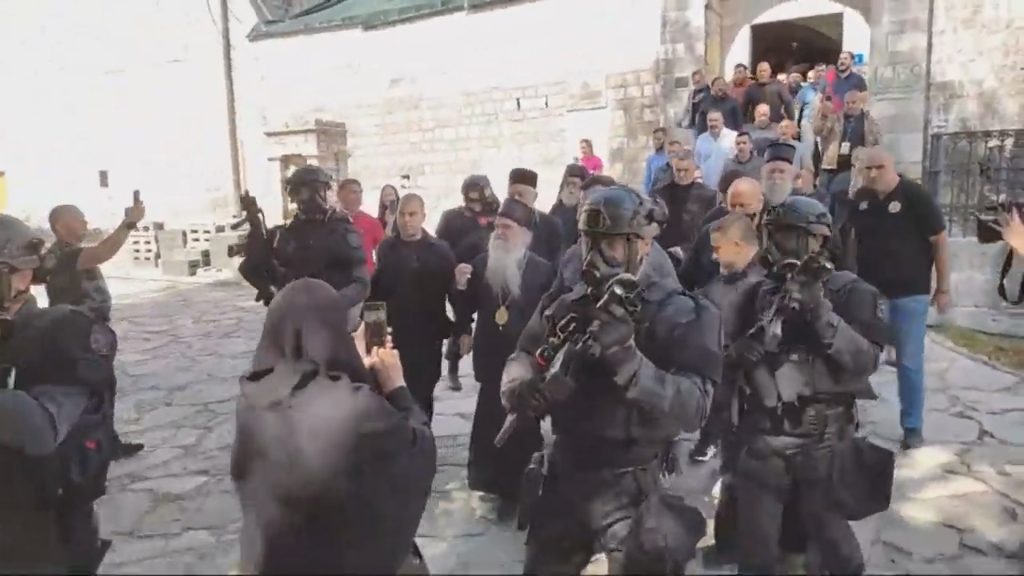The inauguration of the head of Serbian Orthodox Church in Montenegro, last year was a trigger for a non-confidence motion initiated by the then Deputy Prime Minister Dritan Abazovic, which would then bring down the government of Zdravko Krivokapic. Everything started after violent protests organized in attempt to stop the inauguration of Metropolitan of Orthodox Church. In September of last year, Serbian Orthodox Patriarch Porfirije and the new Metropolitan, Joanikije, had to be transported to Cetinje, the old kingdom capital, by military helicopters because the police had used tear gas to disperse the protesters.
Abazovic had vowed to bring down the government, if the interior minister and the chief of police were not removed, accusing the latter of being unwilling to disperse protests the appointment of new Serbian metropolitan. Krivokapic’s government was ousted on February this year, by non-confidence motion initiated by Dritan Abazovic, of course the latter had President Djukanovic and his political party support. As a result of all this, at the end of April, Abazovic was elected for Prime Minister of Montenegro. Immediately after the election, he declared that ‘this Government will last as long as the political circumstances are favorable and as long as the coalition deputies allow it’. Upon assuming the mandate as prime minister, Abazovic took care of the regulation of relations between the church based in Belgrade and Montenegro and an agreement was signed in the end of July 2022.
Signed agreement between the Government of Montenegro and the Serbian Orthodox Church, in a completely private meeting, without public or media presence, tells about the nature of the meeting and pressure Abazovic expected. According to sources, the Serbian Patriarch secretly flew to Montenegro, for the signing of this agreement. Only after the signing the agreement, Montenegro Prime Minister published the information on Twitter. Meanwhile, the followers’ comments poured in accusing him of national treason. From the moment of publication, the signing of the basic agreement caused conflicts even within the government of Abazovic.
The Democratic Party of Socialists of current Montenegro President Milo Djukanovic, which figuratively paved the way for Abazovic to become the Prime Minister, has fallen back among the most vocal opponents. Opponents of this agreement qualified it harmful as they consider that the proposed Basic Agreement places the Serbian Orthodox Church over the Montenegrin state and enables the Serbian Orthodox Church to claim the Montenegrin cultural heritage as religious heritage of Serbian Orthodox Church. Dissatisfaction with the agreement is also in the public opinion, due to the fact that it was signed secretly.
Montenegro is in a new political crisis after the signing of this Agreement, which caused five parliamentary parties to submit the initiative for the non-confidence motion for the Government of Abazovic. The initiative was signed by 36 members of the parliament. By law, a total of 41 votes are needed to vote Abazovic out of the government. The presenters of the motion still lack 5 more votes to proceed. The parliamentary session for the motion of no confidence will be held on August 19 in the Assembly of Montenegro. Meanwhile, Abazovic himself feels comfortable even though a non-confidence motion has been initiated against him in the parliament. He believes that the opposition parties will not have the majority of votes to overthrow his government.
It is unknown whether parliamentary parties that have initiated the motion of no confidence will be able to secure plus five necessary votes or not, but what is clear is that once again the Serbian Orthodox Church was the reason to initiate the resignation of the Government in Montenegro. This time there is an expectation that the Serbian Orthodox Church will be activated with opposition parties, to save the government. But even if the current Government is overthrown, the next one will not be able to change this agreement.Currently, Montenegro is assessed to be under high security threat from Russia. In 2019, Russian malign influence in the Western Balkans is proving to have a political impact in Montenegro through the exploitation of the Orthodox faith, Pan-Slavic identity, and economics. In 2016, a coup d’état was initiated with the intention to cause political unrest and prevent Montenegro from joining the North Atlantic Treaty Organization (NATO). Several Russian citizens were arrested under allegation of preparing the coup against Montenegro Government to foment political chaos.








